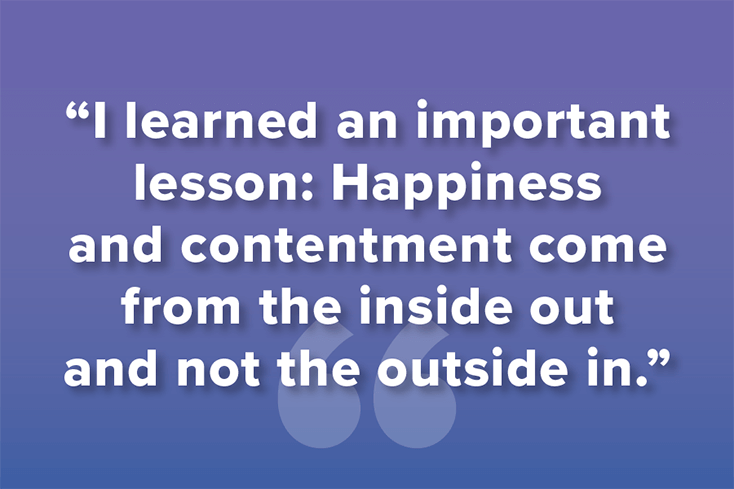November 03, 2022
By Jeffrey Parker
 My experience with clinical depression began at an early age. I believe many of my mental health challenges stemmed from underlying problems — including epilepsy and ADHD, as well as mental, emotional and physical abuse.
My experience with clinical depression began at an early age. I believe many of my mental health challenges stemmed from underlying problems — including epilepsy and ADHD, as well as mental, emotional and physical abuse.
Before the age of three, I had my first seizure. My seizures became more frequent and severe, leading to many injuries, stitches and trips to the emergency room. I also struggled with cognitive deficits and learning disabilities, as well as anger management and impulse control problems. My challenges landed me in special education classes, which became a source of ridicule from my peers. I endured frequent bullying for my cognitive abilities and seizures.
I became angry, violent and depressed. My low self-esteem led me to be self-destructive and rebellious, both at school and at home. I was labeled “incorrigible.” For much of my life, I was running — literally and figuratively. I began running away from home when I was six, and by nine I was in juvenile institutions. In my tween and teen years, I lived in institutions and mental health facilities. To run from the pain, I began drinking — and battled alcoholism at just 15 years old. My drinking led to violent behavior in the streets and severe injuries that landed me in the intensive care unit (ICU). I also experienced frequent trips to the “drunk tank” and the county jail.
After years of struggle, I learned an important lesson: Happiness and contentment come from the inside out and not the outside in. When I told someone that I hated being alone, he replied, “That’s because when you’re alone you hate the person you’re with.” I have never forgotten that. It has reminded me that the external things I once believed would numb the pain — cars, jewelry, houses, drugs and alcohol — will not solve an internal problem.
I realized that empowerment and happiness could start with education. I began attending a local community college. I had to work four times as hard as others to get the same amount of work done and get the same grades. Studying diligently was my primary focus, so drinking became secondary. This energy shift began to change my life. All my priorities changed. I went to college for seven years, earning an associate’s degree in corrections administration and a master’s degree in social work. I drank less and less — and I achieved sobriety one year before earning my master’s degree.
Now, I have learned to care for and love myself — and that has been my most liberating and rewarding achievement. I no longer seek external validation. I even enjoy spending time alone rather than dreading it. I often use time alone to regroup and recharge with the purpose of going back out into the world to contribute in any way I can. Rather than avoiding my feelings or isolating from others, I can charge my emotional batteries and find clarity in time with my own thoughts.
I have been sober for more than 24 years and seizure free for more 23 years. I began driving at 44 years old. I have worked in the mental health field, in addiction recovery and corrections populations as psychotherapist, social worker and counselor. I also deliver motivational speeches, teach college classes and, in 2019, I self-published my book, “Take the High Road; A Must Read for Those with Disabilities and Addictions.” I met my wonderful wife in 2006, and I am privileged to have her love and support.
Life is difficult — you can’t avoid facing challenges. But if you continue to hope, work hard and use the available resources, recovery and joy are possible.
Submit To The NAMI Blog
We’re always accepting submissions to the NAMI Blog! We feature the latest research, stories of recovery, ways to end stigma and strategies for living well with mental illness. Most importantly: We feature your voices.
LEARN MORE